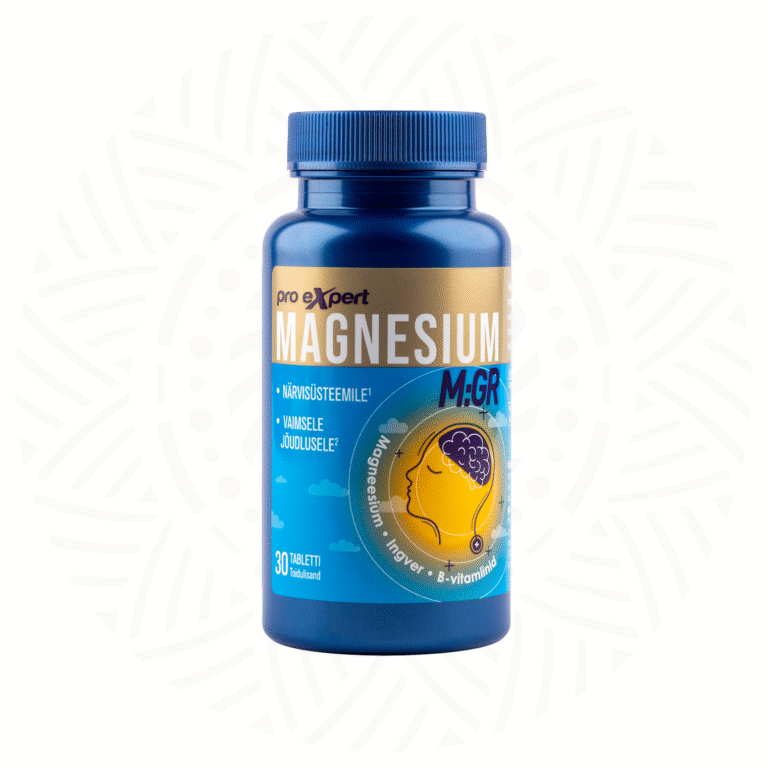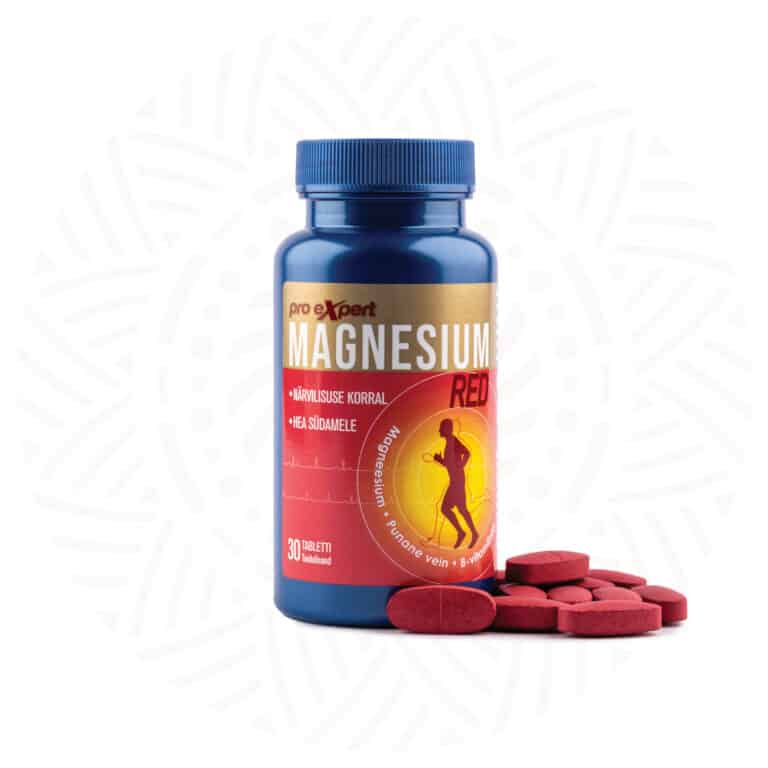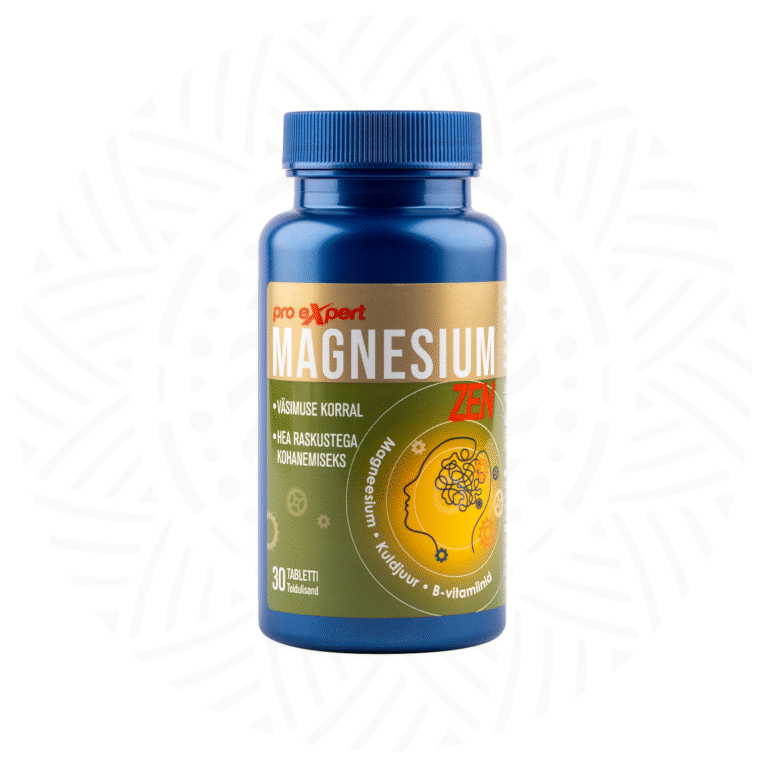If your sleep no longer restores your energy and strength reserves, and constant workload has put a serious strain on your nervous system, then you may have a magnesium deficiency.
Read on to find out the role this vital mineral plays in your mental health and which magnesium is most effective for fatigue and exhaustion?
Why do we need magnesium?
Magnesium is the fourth most common mineral in the human body. Magnesium is essential for the functioning of all cells and over 300 enzymes, which means that a deficiency of this vital mineral can affect your health extensively.
Magnesium effectively helps reduce fatigue and exhaustion, regulates energy production, and helps maintain normal nervous system function. Magnesium is also known as the anti-stress mineral because it helps deal with stress and improve sleep.
Why does magnesium deficiency occur?
Besides vitamin D deficiency, magnesium deficiency is the second most common nutrient deficiency that many people suffer from. This essential mineral deficiency develops easily because the body can only store a fraction of the required magnesium each day.
The primary cause of magnesium deficiency is poor dietary habits – processed foods, ready-made meals, foods processed at high temperatures, and soft drinks.
How much magnesium do we need?
Magnesium needs vary from person to person, but they mainly depend on physical activity, age, and body weight. Therefore, it is important to supply the body with sufficient magnesium daily.
The daily magnesium requirement for the body is 5 milligrams per 10 kilograms of body weight. The average daily magnesium requirement for an adult is 300 – 350 mg. If this need is not met, a deficiency will develop.
Increased magnesium requirements are:
- during mental and physical stress
- for athletes
- during excessive sweating
- for growing children and adolescents
- for pregnant and breastfeeding women
- for elderly people
- while taking certain medications (e.g., diuretics)
- for diabetics
It is important to know that the optimal single dose of magnesium is 100 – 200 mg. Therefore, magnesium is recommended to be taken in smaller doses and, if necessary, several times a day.
What are the symptoms of magnesium deficiency?
The first symptoms of magnesium deficiency are painful leg cramps, “pins and needles” in the hands and legs, eyelid twitching, and persistent fatigue and exhaustion.
Ignoring these symptoms can, in the worst case, lead to serious health problems. Worsening magnesium deficiency can cause:
- high blood pressure
- diabetes
- heart and vascular diseases
- osteoporosis
How to prevent magnesium deficiency?
If you feel that you are suffering from excessive fatigue and lack of energy, the first step is to pay attention to your daily menu. Your diet should be sufficiently varied and healthy, enriched with fruits and vegetables, seeds, and nuts. If needed, support your body with a quality magnesium supplement.
The recommended daily magnesium intake is contained in the following amounts:
- 100 – 200 g of nuts
- 300 g of whole wheat flour
- 450 g of milk chocolate
- 1000 g of bread
- 800 g of buckwheat porridge
- 900 g of cooked wholegrain rice
- 2 kg of Chinese cabbage
When should you take magnesium supplements?
The body is only able to store a fraction of the required magnesium each day, and this is the main reason why magnesium deficiency can easily develop in almost everyone. Therefore, magnesium supplementation can be helpful at any stage of life.
Studies have shown that approximately 80% of the population suffers from magnesium deficiency.
Consider magnesium supplementation when:
- experiencing stress, fatigue, and exhaustion
- having difficulty falling asleep
- having high blood pressure
- children are in a rapid growth phase
- during pregnancy and breastfeeding, when mineral needs are higher than usual
- while taking certain medications (especially diuretics and blood pressure medications)
- if you have a digestive disorder that may impair magnesium absorption
- if you have osteoporosis
Which magnesium to choose for fatigue?
If you are looking for a high-quality magnesium supplement, it’s worth choosing magnesium citrate and magnesium diglycinate, as they have the highest bioavailability.
Magnesium Citrate:
- It naturally occurs as a trace element in the body, making it well-tolerated and easily absorbed
- It is an organic compound (natural) and absorbs well
- It quickly soothes the central nervous system
- It effectively alleviates both physical and mental restlessness
- It significantly increases productivity
Magnesium Diglycinate:
- It is an organic compound bound to an amino acid, which also reaches the brain, promoting a relaxing effect
- It is one of the most easily absorbed forms and is ideal for those with digestive issues (e.g., diarrhea)
- It absorbs easily and is the best choice for alleviating magnesium deficiency
- Due to its calming effect, it effectively helps combat anxiety symptoms.
What enhances magnesium’s effectiveness
Additionally, it is important to ensure that the magnesium contains B-vitamins and Rhodiola Rosea.
Magnesium combined with B-vitamins forms an ideal combo for fighting fatigue and is essential for normal brain function.
Rhodiola Rosea effectively supports the body during stressful periods and enhances both mental and physical performance by helping your body adapt to challenges. It also activates brain functions, reduces stress, and improves focus and learning abilities.
By choosing a supplement that contains all these ingredients, you can effectively prevent physical and mental exhaustion and improve stress resilience.
The secret to progress lies in starting!







